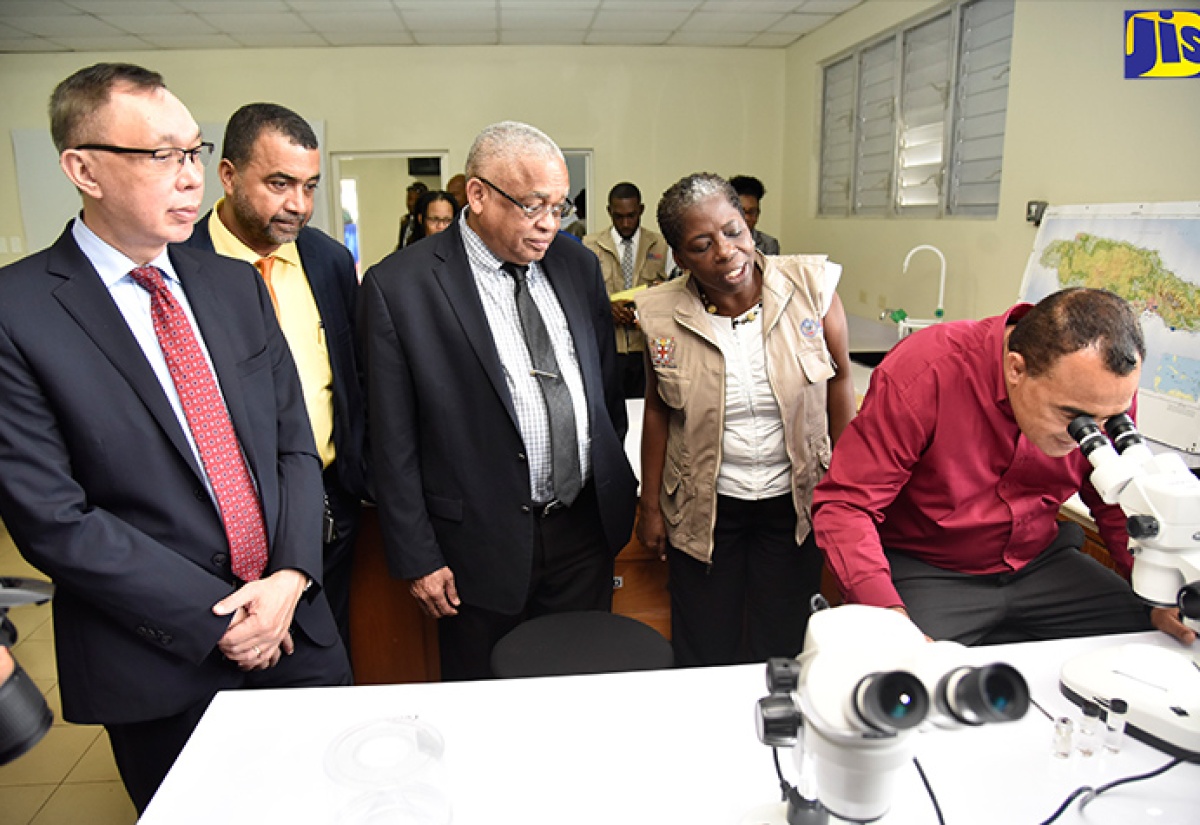Mosquito Control Programme Strengthened
By: , January 10, 2018The Key Point:
The Facts
- Speaking at the opening ceremony on Tuesday (Jan. 9), Health Minister, Dr. the Hon. Christopher Tufton, said the establishment of the MCRU insectary “demonstrates another significant step to help advance and sustain Jamaica’s commitment to mosquito control.”
- Dr. Tufton said the Government of Jamaica is appreciative of the partnership with the USAID, which has facilitated ongoing support to reduce mosquito breeding and vector-borne diseases.
The Full Story
The country’s vector management programme has been strengthened with the opening of the Mosquito Control and Research Unit (MCRU) Insectary at the University of West Indies (UWI) Mona campus in St. Andrew.
A joint initiative of the Ministry of Health and UWI through support from the United States Agency for International Development (USAID), the facility will provide for entomological study ad research aimed at controlling mosquito-borne diseases such as chikungunya, Zika, dengue fever and malaria.
It will serve as Jamaica’s national mosquito control and research laboratory, complementing the insectary at the National Public Health Laboratory on Slipe Pen Road in Kingston.
Speaking at the opening ceremony on Tuesday (Jan. 9), Health Minister, Dr. the Hon. Christopher Tufton, said the establishment of the MCRU insectary “demonstrates another significant step to help advance and sustain Jamaica’s commitment to mosquito control.”
It is equipped with new microscopes, supplies and equipment to advance scientific and operational research.
Dr. Tufton said the Government of Jamaica is appreciative of the partnership with the USAID, which has facilitated ongoing support to reduce mosquito breeding and vector-borne diseases.
The USAID, under its Zika AIRS Project (ZAP), funded the refurbishing of office and laboratory space for the MCRU, which was launched last year and the establishment of the insectary at the national lab.
The MCRU unit was set up to foster data-driven monitoring and decision-making; explore innovative tools and methodologies; and build technical operational and research capacity as it relates to mosquito control.
UWI Pro-Vice-Chancellor and Mona campus Principal, Professor McDonald, in his remarks, said the institution is “extremely pleased” to partner with the Ministry on the initiative and also hailed the support from USAID.
He said the institution envisions the full integration of the MCRU into the research and teaching endeavours of the Mona campus.
“It will certainly add to our efforts to modernise all of our facilities… (as) we continue to serve our stakeholders in Jamaica and across the Caribbean,” he noted.
In his remarks, Chargé d’Affaires at the US Embassy in Jamaica, Eric Khant, said advancing public health was among the priorities of the US’ engagement with the Caribbean.
He contended that infectious diseases like Zika “know no borders (so) we must work together to protect our citizens.”
Mr. Khant noted that the insectaries’ combined resources will provide the Ministry and UWI with “adequate space to complete the necessary surveillance and research activities to elevate mosquito control efforts in Jamaica.”
The ZAP project is designed to enhance the USAID’s ability to implement vector control and entomological monitoring programmes in Latin America and the Caribbean.


